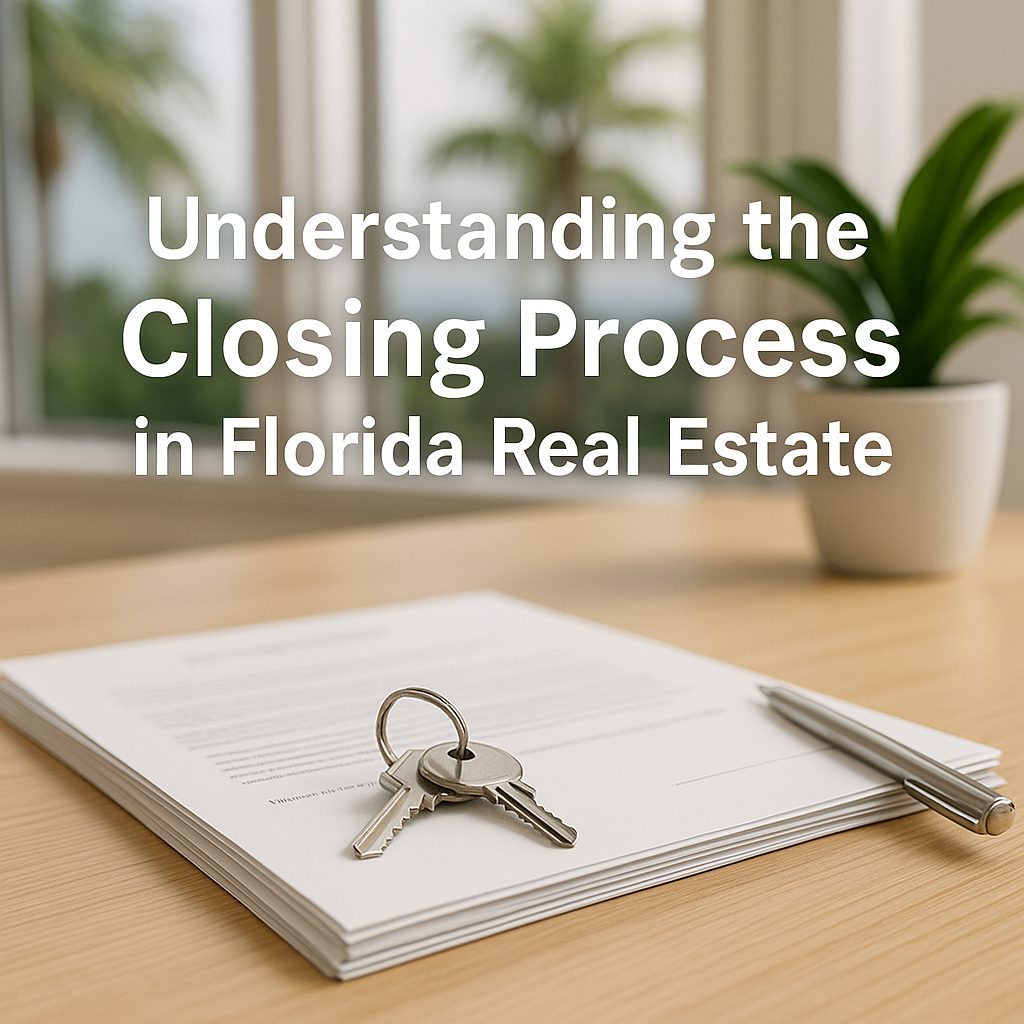Understanding the Closing Process in Florida Real Estate
By Ryan McAllister – Coldwell Banker Realty
Buying or selling a home in Florida is an exciting journey, but the finish line is not the day you accept an offer. The real milestone is the closing, where ownership officially changes hands. Understanding the steps between signing the contract and walking away with keys or a check is essential for avoiding delays, surprises, or costly mistakes.
In Brevard County, the process follows Florida’s specific laws and timelines, and it moves quickly when everyone is prepared. This guide walks you through each step so you know exactly what to expect and how to stay on track.
Step 1: The Contract is Signed
Once a buyer and seller agree on terms, both parties sign a purchase and sale agreement. In Florida, this contract becomes legally binding as soon as both signatures are in place and the initial deposit is delivered to the escrow agent or title company. The contract will outline important details like the purchase price, closing date, contingencies, and who pays for certain closing costs.
Why this matters: A clear, well-written contract sets the tone for the rest of the process. If any terms are vague or misunderstood, it can cause disputes later. In Brevard’s competitive market, clean and precise contracts help transactions move forward smoothly without unnecessary delays.
Step 2: Escrow and Earnest Money
The buyer delivers their earnest money deposit to a neutral third party, typically a title company. This shows good faith and is applied toward the purchase at closing. In Brevard County, earnest money is often one to three percent of the purchase price, but this can vary depending on negotiations.
Why this matters: Earnest money gives the seller confidence that the buyer is committed, while also protecting the buyer if certain contingencies are not met. Prompt delivery of the deposit keeps the transaction on schedule and demonstrates reliability.
Step 3: Inspections and Due Diligence
Florida contracts usually provide a set period for inspections. This can include a general home inspection, termite inspection, mold testing, and in coastal areas, a wind mitigation or four-point inspection for insurance purposes. In Brevard, this stage is especially important because homes may have unique maintenance needs due to heat, humidity, and storm exposure.
Why this matters: The inspection period allows the buyer to uncover any major issues and request repairs or credits. For sellers, having a well-maintained property and addressing issues quickly can prevent renegotiation and keep the sale on track.
Step 4: Appraisal and Loan Approval
If the buyer is financing the purchase, their lender will order an appraisal to ensure the home is worth the agreed-upon price. Florida lenders are strict about value because they must protect their investment. At the same time, the lender continues reviewing the buyer’s financial documents to give final loan approval.
Why this matters: If the appraisal comes in lower than expected, it can jeopardize the deal. Knowing your home’s market value before listing can help avoid this. Buyers benefit from having all financial documents ready early to prevent delays in final loan approval.
Step 5: Title Search and Insurance
The title company conducts a title search to ensure there are no legal claims, unpaid taxes, or liens on the property. Once the title is confirmed as clear, the buyer will purchase title insurance to protect against future claims. In Brevard County, it is common for the seller to pay for the owner’s title policy, but this is negotiable.
Why this matters: A clear title is non-negotiable for closing. Buyers gain peace of mind knowing they have legal ownership without risk of hidden claims. Sellers benefit from addressing any potential title issues early so they don’t delay closing.
Step 6: The Closing Disclosure
At least three business days before closing, the lender must provide the buyer with a Closing Disclosure, which details all final loan terms and closing costs. This is a chance to review everything and ensure there are no unexpected fees or changes.
Why this matters: Reviewing this document early gives buyers time to ask questions or correct errors before the day of closing. Sellers should also verify their payout amounts to ensure accuracy.
Step 7: The Final Walkthrough
Usually held within 24 hours of closing, the final walkthrough allows the buyer to confirm that any agreed-upon repairs have been completed and the home is in the expected condition.
Why this matters: This is the last opportunity for buyers to ensure they are receiving the home as promised. For sellers, a clean, move-in ready home leaves a positive final impression and avoids disputes.
Step 8: Closing Day
On closing day, both parties sign the final documents, funds are transferred, and the deed is recorded. In Florida, closings often take place at a title company’s office, though remote closings are becoming more common. Once everything is finalized, the buyer receives the keys and the seller receives their proceeds.
Why this matters: Closing is the finish line of the transaction. Being fully prepared with all documents and IDs ensures a smooth, on-time completion with no last-minute stress.
Final Thoughts
Understanding each step of the closing process can make a big difference in how smoothly your transaction goes. Whether you are buying or selling in Brevard County, preparation, communication, and working with experienced professionals will help you reach the closing table with confidence.
If you are thinking about buying or selling and want a clear roadmap from start to finish, I am here to guide you through every step.
Ryan McAllister
Realtor®, Coldwell Banker Realty
📞 321-704-7103
📧 Ryan.McAllister@cbrealty.com
🌐 RyanSellsBrevard.com


 Facebook
Facebook
 X
X
 Pinterest
Pinterest
 Copy Link
Copy Link
